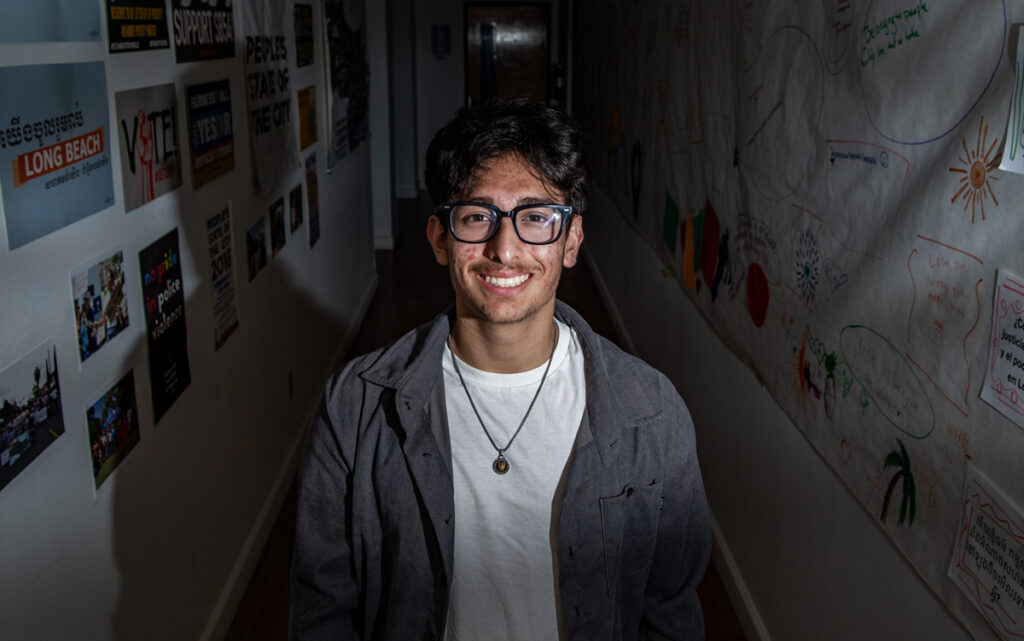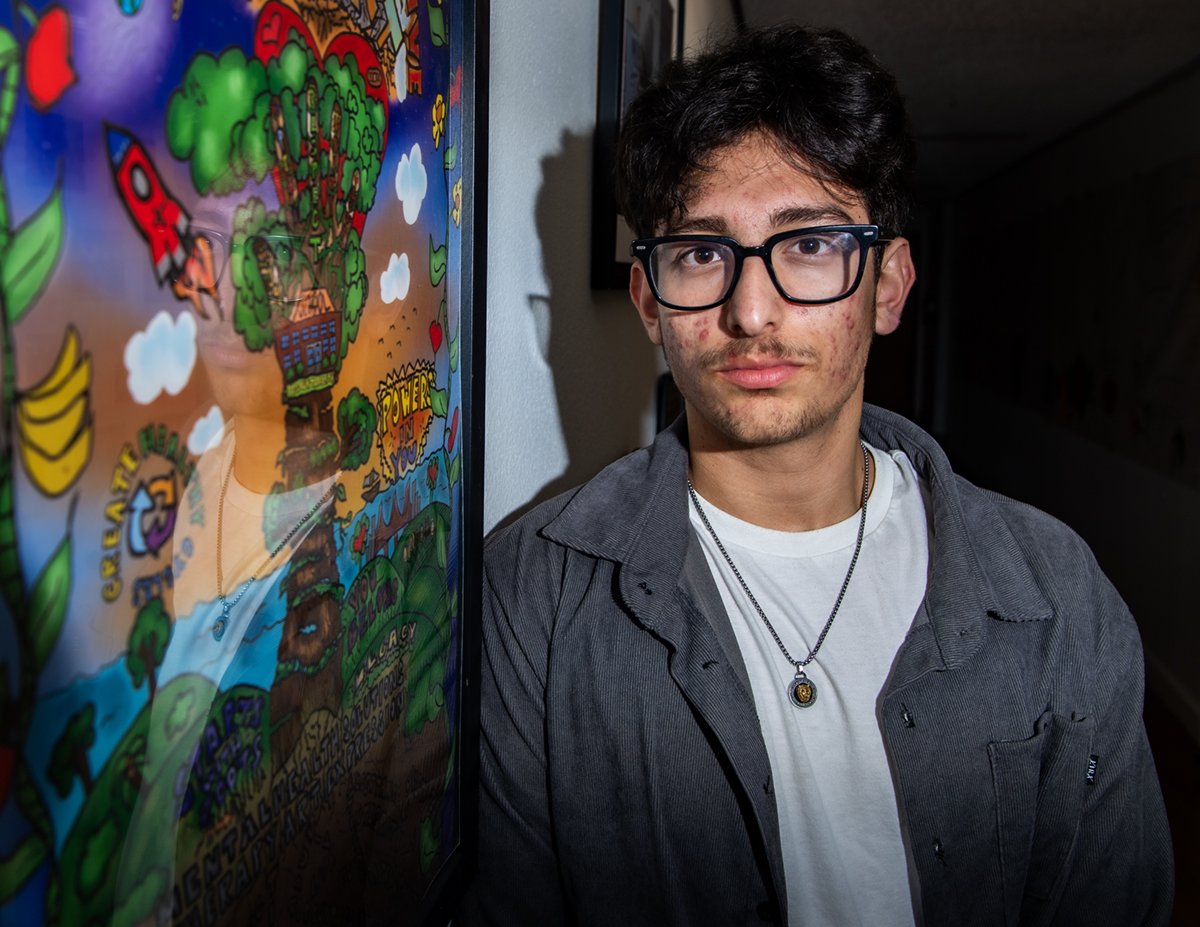After Donald Trump won the 2024 presidential election on a pro-deportation agenda, McBride High School senior Ezequiel Correa felt moved to write.
“How can I use this as a medium,” he said of his poetry, to spur “others to take up action?”
Colors came to him first: reds and browns, he said, represented the soil and skin of his Mexican ancestors. Then he replayed the rhythms of his conversations with his mother, an immigrant. He conjured motifs evoking his heritage (“huaraches sliding across dust”) and the life he leads in Long Beach (“sneakers scraping pavement”).
All these elements were “a resistance to something,” Correa said: “attacks on our autonomy.” He wove them into a vivid tapestry celebrating his Chicano identity and culture. The resulting poem, “My Ballad,” led him to be honored as this year’s Youth Poet Laureate of Long Beach.
Correa’s mentors described him as “wise beyond his years” (he is 17) and “emotionally honest” (his poetry readings have moved audience members to tears). But above all, he writes about what matters to him, Youth Poet Laureate mentor Nancy Woo said.
That ethos is essential to the mission of the Long Beach Youth Poet Laureate program, which seeks young poets who are engaged with the world, Woo said. A poet herself, Woo believes poetry should acknowledge the crises people are facing, and she encourages Correa and other youth poet ambassadors to see the complexity and richness of the world.
Over a year, the poet laureate and ambassadors hone their craft through workshops, and Woo said she has seen Correa “blossom through this program.” Ultimately, “the youth poet laureate – laureateship in general – is a service position,” Woo said. In addition to spreading love for poetry through appearance and speaking events, the position is designed to empower youth to speak truths that poetry can uniquely address.
In August, Correa was tapped to read at a meeting of Long Beach Unified School District administrators. As he waited for his turn to speak, he heard Superintendent Jill Baker “mince her words,” alluding to recent federal immigration raids without directly naming them, Correa said.
“I realized then I could take the space not only to just read my poetry, but to also speak out on the terrors that are happening in this country,” Correa said.
He faced the district’s decision-makers with confidence and prefaced his poem by speaking about Immigration and Customs Enforcement, discrimination and resilience.
Lucy Salazar, director of equity, engagement and partnerships in the district, sat in the audience. “To acknowledge that in front of our administrators was really powerful,” she said. “The more we continue to hear students, the better we do as adults.”
For Correa, it was a turning point in seeing poetry as an essential political tool, one that can bridge understanding and inspire action. (“I can only ever read this type of poem,” he said.) And he looks to young people like Amanda Gorman, the country’s first youth poet laureate, who captivated a national audience when she performed her poem “The Hill We Climb” at President Joe Biden’s inauguration.

But Correa also sees how what he’s learned as a poet — distilling salient information, crafting powerful language — can translate to other settings, like debates on the House of Representatives floor, he said. As he waits for news on his college applications, he will keep his options open.
“The arts aren’t exactly something that’s super aspirational in our house,” he said. Yet his mother, Martina Gallardo, who has raised five children, including Correa, sees immense potential in her son’s work. “His poetry allows people, even for just a moment, to really bathe in another entity,” she said in Spanish — particularly important, she added, at a moment when the U.S. is seeing a rise in white supremacy.
She is not alone. Amy Crepeau, who helps oversee the youth poet laureate program through the public library, watched Correa and other ambassadors speak at a ceremony in May and was buoyed by their messages and poise. “We’re in good hands,” she said of the youth poets who are raising their voices in what she called a “heavy” political moment.
This is what Correa aims to inspire. When he thinks of police in riot gear confronting unarmed protestors or the discrimination his mother has experienced, the injustice feels insurmountable. “How do you defeat that?” he asked — and answered in an interview: “Through hope,” he said. “That’s ultimately what poetry brings.”
The Youth Poet Laureate program is currently accepting applications for the 2026-27 cohort. Long Beach teens can check the eligibility and application requirements and apply here before February 28, 2026.

